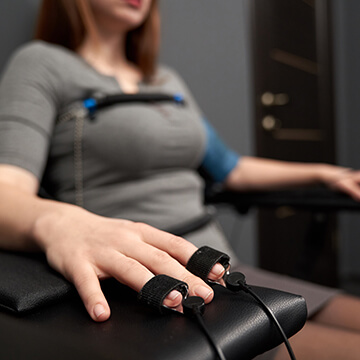
Determining if your spouse is cheating or if your grown teenager is partaking in illegal substances may be the typical assumption for who needs a polygraph test. Besides the everyday person, employers also administer these tests to screen their talent. Ken Shull with Kendall Investigations works with both private individuals and businesses. Ken's Master's Degree in Polygraph comes in handy since knowing how and when to use lie detection can become tricky, especially for companies and their workforce.
The Employee Polygraph Protection Act of 1988
Not just any company can simply call up their job candidates and ask them to sit down and agree to a polygraph. Employers must adhere to the EPAA (The Employee Polygraph Protection Act of 1988) if they intend to implement polygraph testing in their workforce. Under this act, most private employers are not permitted to administer testing. However, the public sector is a different story. Ken Shull with Kendall Investigations understands the legalities of employment testing and can assist you with questions regarding utilizing lie detectors during the employment process.
Which Employers Use Polygraph Testing and Why?
The EPAA outlines who can and cannot administer polygraph testing when it involves employers. Ken Shull with Kendall Investigations has the expertise to navigate the nuances (who can do it and who can't) with you.
The public sector does not fall under the EPAA and often utilizes polygraph testing. They're often seen in -
- Police departments
- Fire departments
- School systems
- Correctional facilities
Though the private sector faces more stringent restrictions on who can administer a polygraph to their employees, there are some exempt industries -
- Armored car drivers
- Security system designers
- Security guards
- Companies that work with controlled substances (including pharmaceuticals)
Ken Shull with Kendall Investigations can detail exactly which companies may or may not request polygraph testing from employees.
What Does an Employer's Polygraph Test Cover?
If you're the one who may be facing a lie detector test to land a job, knowing what to expect can help ease your mind. You always have the right to deny testing. However, doing so may raise suspicions unless you provide a good reason. Ken Shull with Kendall Investigations can provide detailed information on exactly what's covered during testing.
A polygraph test for employment verification often covers things like -
- Driving/insurance history
- Credit background
- Drug and alcohol use
- Providing false information
- Employment habits
Note – employers should not include topics such as religion, race, or sexual beliefs.
What to Expect
Indeed.com offers a quick rundown on what you can expect if you're subject to taking a lie detector test for a prospective employer. Ken Shull with Kendall Investigations will work with you on additional details if you want to pursue this further. The general process entails –
- Pre-Exam - This comes in the form of a written exam, and it can vary from company to company. The exam may include multiple-choice, true/false options, or short answer questions.
- Polygraph Set Up - Following the pre-exam, you'll be connected to a device that will monitor your physiological response to questions. Responses are recorded to determine how much stress the person being tested displays. The test begins with baseline questions to record truthful answers.
- Question Review - Once you're set up, the written exam is reviewed.
How to Prepare
If you're the one who will be taking a polygraph test, preparation is power; it'll help take away unnecessary nervous jitters before taking the exam.
- Set Aside the Whole Day -Don't bother scheduling a dinner date for that night. It'sIt's not worth stressing throughout the day that you might not make it for your 6 pm reservation. Lie detector tests can take a couple of hours to complete. Since you'll likely lose a chunk of your day to the testing, don't forget to pack some snacks. Don't let your hunger affect the outcome of your test.
- Keep Your Routine - Humans are creatures of habit and like the predictable. Stick with what you know in your day to avoid undue stress, which could affect your vital signs. Now is not the time to start learning the guitar right before going in for the polygraph.
- Dress For Comfort - Picking your slim pants to look presentable may backfire once you try to sit uncomfortably in the exam chair as the waste line cuts off your circulation. Just remember this is still a serious situation, so you might want to skip the sweats and find a good business casual ensemble.
- Be Honest - Only you and the examiner will know the test results. Everyone makes mistakes, and fessing up if you have any doesn't necessarily disqualify you for the position. An employer will likely respect you more for admitting to past discretions vs. being caught in a lie.
As an employer, or a potential candidate, arming yourself with the knowledge of how employment polygraph testing works equips you to be prepared for any scenario. Ken Shull with Kendall Investigations is a leading expert in this field. If you find that polygraph testing needs arise with you and a state of employment, take the time to work with Ken, and he'll guide you through the entire process.
Uncover the truth!
--
Ken Shull served as a Special Agent with the FBI for almost 25 years and was head of the FBI Polygraph program until his retirement in 2001. At that time he set up the Kendall Investigations practice as a private investigator in Knoxville, TN offering Polygraph services, private investigations, and security guards. Ken is a member of the American Polygraph Association and The American Association of Police Polygraphists.
The Truth is Still the Truth Even if No One Believes it, A Lie is Still a Lie Even if Everyone Believes it.
